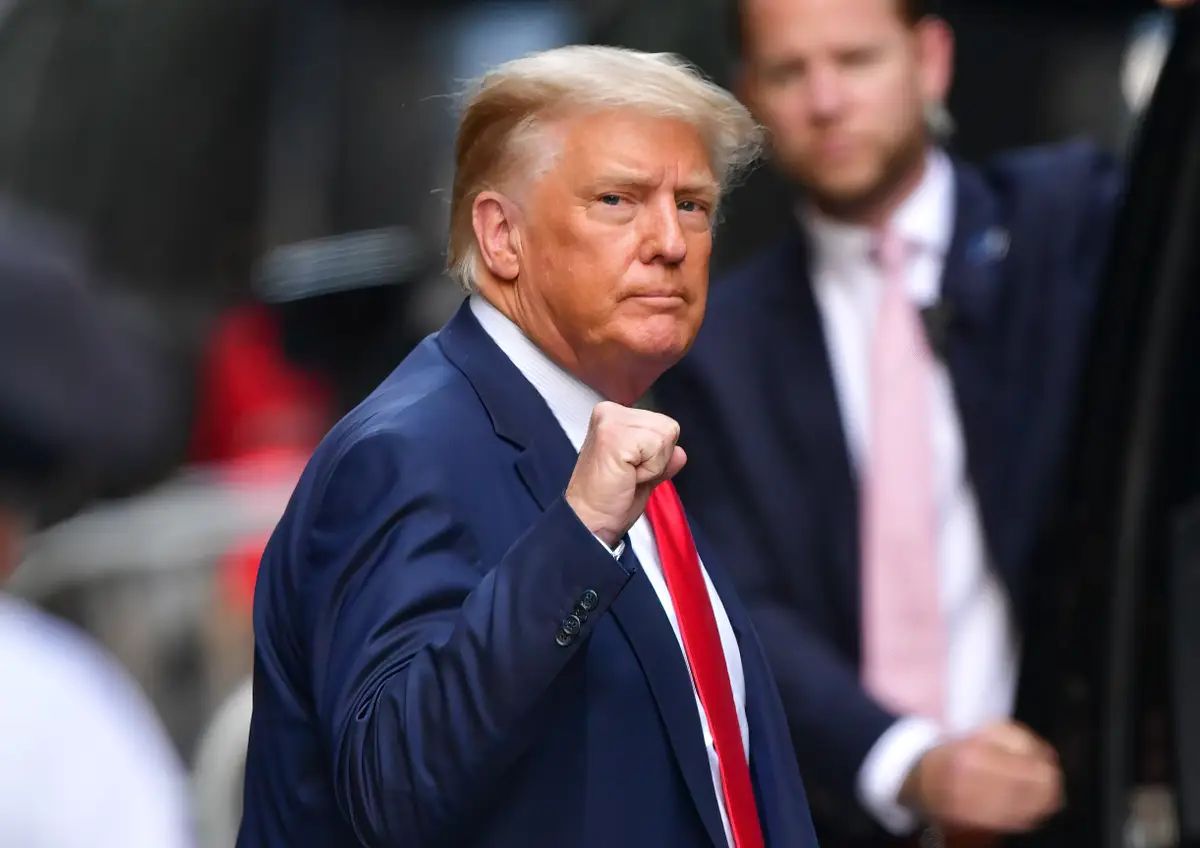The more pertinent question, perhaps, is whether the Department of Justice ever really intended an indictment as part of this investigation.
With more details now revealed about the 10+ hour raid of Trump’s personal residence at Mar-a-Lago, we’re still left with more questions than answers.
The crux, however, boils down to the fact that the issue is still and has remained nothing more than a document dispute between the former president and the National Archives. So far, nothing in the redacted affidavit or the unsealed warrant indicates some kind of criminal activity Democrats were hoping for.
In that regard, an indictment seems not only unlikely but may be entirely off the table if was ever even on the table.
For example, according to Daniel Richman, a former federal prosecutor, the resulting unsealed affidavit and warrant reveal a roadmap for document recovery, and nothing more:
Richman said that in order to obtain a search warrant, the department has to provide probable cause that violations of relevant criminal offenses, like the Espionage Act, occurred. But citing those offenses to make the argument that investigators have a reasonable basis to believe there was a violation does not guarantee a search will result in an indictment.
“The search may well have been just a product of exasperation at Trump’s non-compliance with demands that he return highly sensitive materials,” Richman said. There’s the possibility that nothing follows the raid aside from the recovery of those records.
Famed constitutional lawyer Alan Dershowitz also concurred that the Department of Justice might be able to indict Trump if it wanted to, but that scenario is looking very unlikely:
Constitutional lawyer Alan Dershowitz agreed, saying that conducting an FBI search and prosecuting a violation of the Espionage Act are “two different issues.” He pointed out that because the statute is so broad, the Justice Department has historically been selective with its use of the Espionage Act to avoid wielding it against any political opponent.
“The question isn’t whether you can get a conviction,” Dershowitz told Newsweek. “The question is whether it’s proper to bring a charge against Trump under this statute when it’s never been brought before in this context.”
It would be highly out of place to indict a former president over an issue of classified documents considering the president and the president alone has the authority as the sole arbiter of whether a document remains classified.
Hillary Clinton was let go with a wink and a nod by FBI Director James Comey back in 2016 citing his belief that the former Secretary of State simply didn’t “intend” to break the law when she stored thousands of classified documents on an unsecured server in a Denver apartment bathroom.
Keep in mind that Hillary Clinton has never been president and never possessed the authority to declassify anything. In her case, she simply destroyed documents so there was nothing to raid.
Writing at The Hill, columnist Kevin Brock lays out the defense that not only will Trump-haters be disappointed in the outcome, but the Justice Department still doesn’t understand the gravity of the situation it created when it sent agents into the residence of a former president over a paperwork dispute:
Any clinging hope — in certain quarters — that the affidavit possessed “pulverizing” cause to believe Trump was engaged in a truly serious federal violation can — I think — be considered dashed. The pipe dream that Trump was engaged in espionage, actively providing secrets to an enemy I think is as fanciful as the Steele dossier’s Moscow hotel bed reverie. And, no, I don’t believe a smoking gun of espionage or something equally shocking will be in the redacted sections. If the FBI had that, it would have fronted that in the unredacted portions.
As to the second and more important point, the affidavit’s probable cause statements focus on only half of what is needed to show a possible violation of the federal statutes that are cited in the warrant. The affidavit does a reasonable job of establishing cause to believe Trump possessed a range of classified materials — or at least once-classified materials — and that those materials were located in his residence.
But that’s not all that’s needed — in this case in particular. A criminal violation of those statutes only exists if it can be established that the person being investigated was not authorized to possess, store, transfer or copy those documents. This is an easy element to establish against anyone in America. Except one person.
As Brock notes, the unredacted parts of the affidavit still provide no basis that a violation of the law took place.
By the way, whatever happened to the story that Trump was storing nuclear weapon codes or something a Mar-a-Lago? That report came from the Washington Post based on anonymous sources supposedly familiar with the investigation.
So far, there’s still no mention of nuclear codes in any FBI documents released that detail any reasoning for the raid.
For the time being, the case is stuck in the bureaucracy of the Justice Department and may wind up going nowhere or sitting on hold until well after the midterms.
Donate Now to Support Election Central
- Help defend independent journalism
- Directly support this website and our efforts
